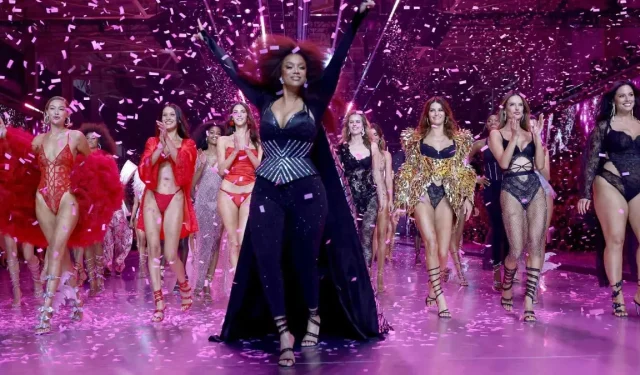
On October 15, 2024, the long-awaited return of the Victoria’s Secret Fashion Show marked an end to a six-year break, and frankly, I’m already feeling the fatigue. Danielle Pergament from Allure described the event as “irrelevant,” echoing her daughter’s sentiment that the show’s portrayal of body diversity felt more like tokenism than genuine inclusivity. Kelly Stafford has raised concerns regarding whether the harmful implications of diet culture promoted by Victoria’s Secret have truly been addressed.
It’s worth pondering if we will ever learn to reevaluate our trust in profit-driven corporations.
making HISTORY as the first African performer for Victoria’s Secret and looking ANGELIC while doing it… Tyla you will forever be famous? ↕️ pic.twitter.com/sg4NMVDSkg
— sae? (@tylasbodyguard) October 15, 2024
The brand made the decision to cancel their fashion shows indefinitely in 2019, following numerous controversies surrounding their troubling legacy and disparaging remarks from their former marketing head about women’s bodies and transgender models. As the world began to acknowledge disturbing links between Victoria’s Secret’s casting practices, top executives, and Jeffrey Epstein, the #MeToo movement gained momentum once more, coinciding with a peak in body positivity as Lizzo ascended to stardom. It prompted society to critically examine the motivations and implications of the Victoria’s Secret shows.
Online feminist communities rallied extensively against the brand’s troubling practices in 2018 and 2019, so I find it surprising that a significant number of people are enthusiastic about the show’s revival in 2024.
This year’s Victoria’s Secret Fashion Show featured a predominantly slender lineup of models, along with two transgender models, Alex Consani and Valentina Sampaio, and a few plus-size representatives like Paloma Elsesser and Ashley Graham. The runway also welcomed some retired icons such as Kate Moss (50), Carla Bruni (56), Tyra Banks (50), and Eva Herzigova (51).
OMG OMG CARLA BRUNI JUST WALKED AT THE VICTORIA’S SECRET FASHION SHOW!! pic.twitter.com/Nk4inXZFtI
—? . (@aemisias) October 15, 2024
While these casting decisions might signal progress and challenge past norms, the changes seem insufficient against the backdrop of a resurgence in diet culture influenced by trends like the Ozempic phenomenon and the reemergence of the “heroin chic” aesthetic. Furthermore, the attire worn by models with curves or signs of aging was noticeably less revealing compared to those donned by typical Victoria’s Secret models.
alex consani is the first-ever trans model to walk the victoria’s secret runway. pic.twitter.com/Vkx45dcGez
— pop culture (@gagasyuyi) October 15, 2024
While it’s notable that Victoria’s Secret has made strides to employ their first transgender models, the inclusivity does not extend to the actual collection, which features products like binders, tuck tape, and bras designed to mimic breastplates. Their approach raises the question: can this truly be considered inclusivity when casting feels like a mere superficial fix for a deeply rooted issue reflected in their production processes, catalogs, and legacy of exclusivity against various marginalized groups?
Don’t mistake my opinions for disdain against lingerie or sexual positivity. I am an advocate for lingerie, love sex positivity, and celebrate stylish celebrities in revealing outfits. I hope brands like Calvin Klein never cease promoting men’s underwear featuring impeccably groomed models. I adore a fantastic Miami Swimsuit Show. However, I can’t support brands that are misleading, and Victoria’s Secret gives off that insincere vibe.
There are numerous other lingerie brands offering thoughtful designs for diverse body shapes and needs, and their quality surpasses that of Victoria’s Secret. It’s common knowledge that many women struggle to keep Victoria’s Secret products intact beyond six months due to pilling and discomfort. Can anyone show me a Victoria’s Secret thong that genuinely accommodates the average person’s measurements? Challenge me!
In the meantime, let’s support more ethical and smaller brands that prioritize customer feedback. Tomboyx has offered all-gender-inclusive items since 2013, catering to a variety of styles and sizes. Knix has transformed leak-proof underwear and featured models aged 50-81 in their campaigns. Additionally, Rihanna’s Savage X Fenty has been a frontrunner for promoting inclusivity across size, ethnicity, queerness, and disabilities since its inception. There are countless other independent brands to explore! Ultimately, there is no need for Victoria’s Secret—we never truly needed them to begin with.




Leave a Reply